Published Sep 27, 2018
Picard Still Making It So
Picard Still Making It So
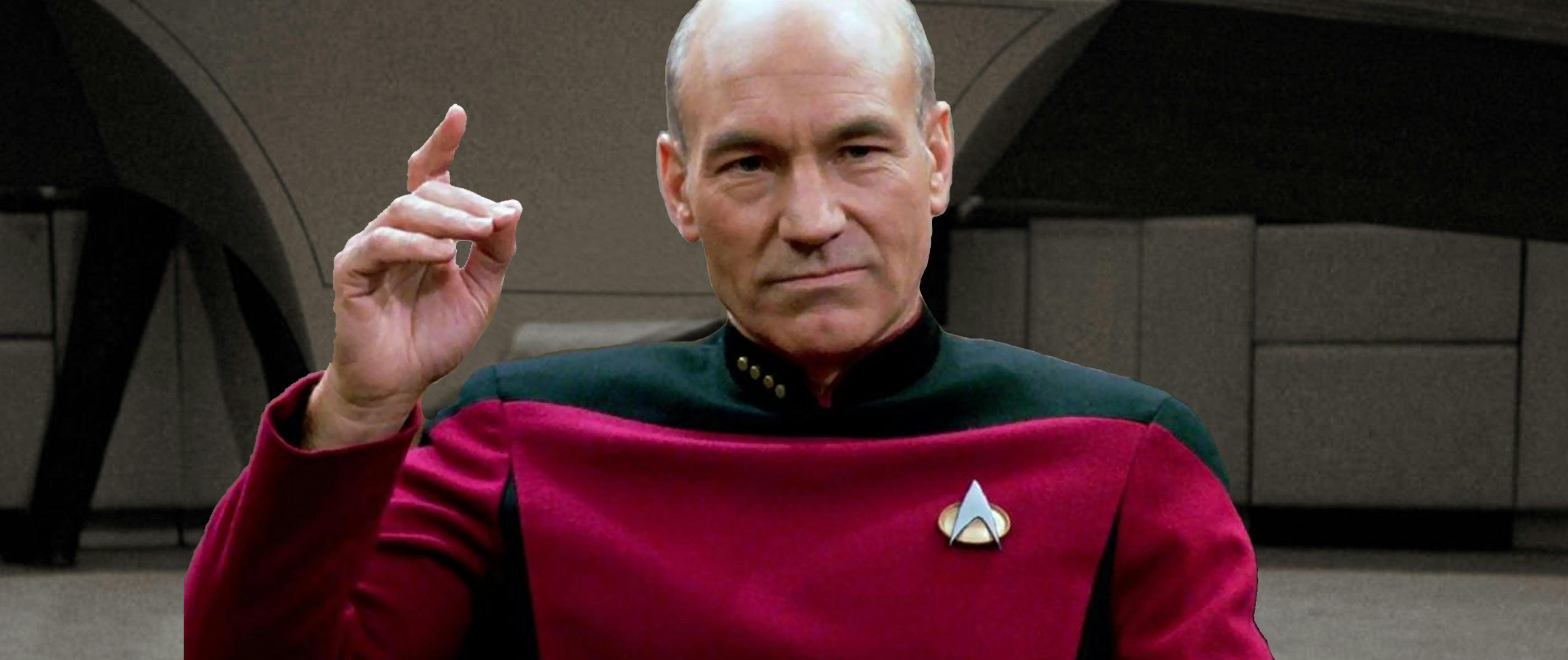
My introduction to Star Trek was very definitely Star Trek: The Next Generation - I was seven, the episode was "Yesterday's Enterprise." While I’m sure my brain then failed to grasp the greater implications of that classic, epic TNG hour, nonetheless, I was hooked. I feel a certain love and affinity for the Enterprise-D characters that remains unmatched throughout the franchise, and Captain Jean-Luc Picard is no exception. On the 31st anniversary of "Encounter at Farpoint," I'd like to explore how Picard, as the quintessential Starfleet captain, shaped the series for 30 years and counting.
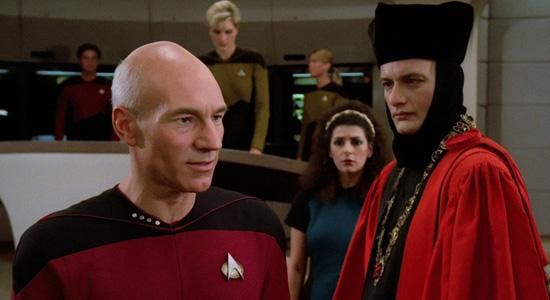
In casting Sir Patrick Stewart, Gene Roddenberry, Rick Berman and the TNG staff received the best of both worlds (pun very much intended; what do you take me for?) in both Stewart's Shakespearean stage training and the gravitas and warmth he brings when in front of a camera. He knows how to interact with an audience, even if that audience is invisible to him as he's filming, reaching out to those of us at home watching the adventures of the Enterprise-D week after week. When I first "met" Picard, it was easy to see why he was the captain. He speaks and moves with authority, especially as he commands the helmsperson to "Engage!" or instructs a crew member to "Make it so," uttering those words for the first time.
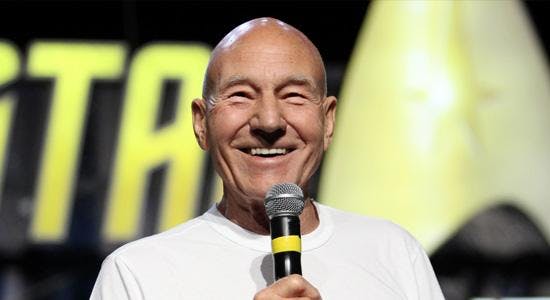
Sir Patrick is recognizable in three ways - his distinguished profile, shiny bald head, and voice. I’d argue that his voice is the most-iconic element of his persona, as it is for Captain Picard. When he gets angry, you know it’s for a very good reason and you best watch your step! Woe betide those in Picard's path when his crew or Starfleet is threatened. Just as important is how he uses his tone of voice to get things done. A decisive tone is clearly an imperative part of being in command. Not to malign a fellow captain of the Enterprise (NX), but I found Captain Archer to be very off-putting in the pilot when he simply said "Let's go." I’d just started college, Janeway had been my captain for seven years and I adored her very being. She, too, spoke with authority and certainty. Picard's particular phrasing, however, set the gold standard for the captains that followed. "Let’s go" was not acceptable after "Engage! and "Make it so."
Alongside his signature “Picard maneuver,” those phrases and the accompanying body language – a definitive point forward issued forth from the captain’s chair – allowed Stewart to define Picard’s authority right away. Whether the body language came from a director or the actor’s own choice, these seemingly small choices clearly have a big impact on the viewer and reinforce Picard’s status as a great captain.
Watching from a young girl’s perspective, Picard felt like a captain who’d advocate as much for me as for anyone else. While he had romances, the feminism Picard often displayed was a breath of fresh air compared to some of the other men in charge on TV of the late 80s and early 90s. He listened to Dr. Crusher and Counselor Troi, taking their concerns seriously when dealing with difficult situations. I agree that TNG’s female roles were of the caregiver variety, but the fact that these two female senior staff members had a seat at the table and a voice their captain listened to put TNG ahead of its time.
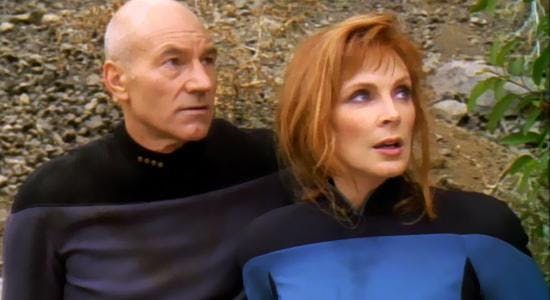
In the episode "Attached," Captain Picard and Dr. Crusher wake up with implants connecting their thoughts. I loved getting a look at how Picard approaches command through different eyes, especially when Crusher realizes he doesn't actually know which way to go after they awaken on a strange planet. He’s going through the exact same experience she is, but he picks a direction and follows through - a hallmark of command. In my personal life, I often think of this as a "Fake it 'til you make it" moment to spur me forward in times of indecision - which is exactly what Picard is doing. He preserves the illusion of authority and know-how in an instance where he is unsure - not that he'll let you see his uncertainty. He rightfully believes those under his command need to see that certainty and leadership, and look to him for reassurance in difficult and uncertain moments.
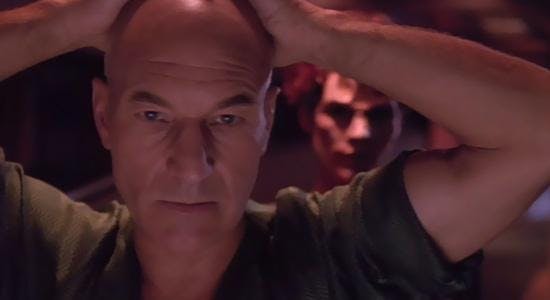
A favorite Picard episode is “Starship Mine,” which depicts him not just protecting his crew but also his ship. In a very Die-Hard/JohnMcClane turn, Picard needs to stay ahead of a deadly energy sweep forcefield while also fighting off a team of thieves who want to sell Starfleet materials to make explosives. This episode is a winner because Picard has no other Starfleet officers with whom to interact, but we see him go to bat for the Enterprise and fighting for the safety of unknown innocents who might die should this group acquire and sell explosives. Stewart showcases what makes Picard special while carrying the episode alone as viewers cheer him on.
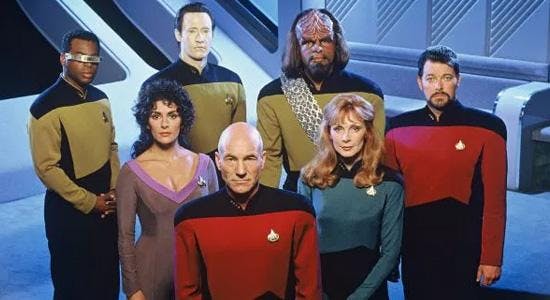
Captain Picard’s actions and follow-through when it came to upholding Starfleet ideals, not to mention his willingness to put himself in harm’s way both physically and mentally, round out his leadership on the Federation flagship. Picard is known for being a great diplomat at the start of the series, but after the seven-year run and four films, we seem him shedding some rigidity and following his heart more and more often. He can generally get away with this because he’s such a respected officer, and the audience is always all-in for these moments of noble rebellion. Do his actions always make logical sense? Of course not (especially in Star Trek: Insurrection), but sometimes the plot details don’t matter. What matters is Picard always makes his crew feel like they’re in something together, fostering an us-against-them feeling of heroism, and takes the viewer along for the ride.

In celebrating Picard and Stewart’s contributions to what we view as excellent leadership, from Picard in 1987 throughout the series, films, and into Stewart’s personal advocacy on behalf of LGBT+ rights, his stance on domestic abuse as a men’s issue (not a women’s issue), his compassion for animals, and more, we are given a stellar example of how to live the ideals his character espoused 30+ years ago. Now, as he steps back into character that many of us grew up with, he and the Star Trek powers-that-be can once again “Make it so” as they find new stories to tell that’ll undoubtedly provide us with more great leadership in a world where supposed leaders often lack integrity. Some might say that’s just the difference between fiction and reality, but I set a high standard for my leaders and myself because that’s what Picard brought into my life -- and all our lives -- as Star Trek fans, many years ago.
Amy Imhoff is an author, digital media specialist, convention panel host, and sometimes professor who specializes in women’s representation in media. She has appeared on numerous Star Trek podcasts and is featured in “Outside In Makes It So,” a collection of Star Trek: The Next Generation essays available from ATB Publishing. Amy lives outside NYC with her husband, two silly cats and various geeky collections.

